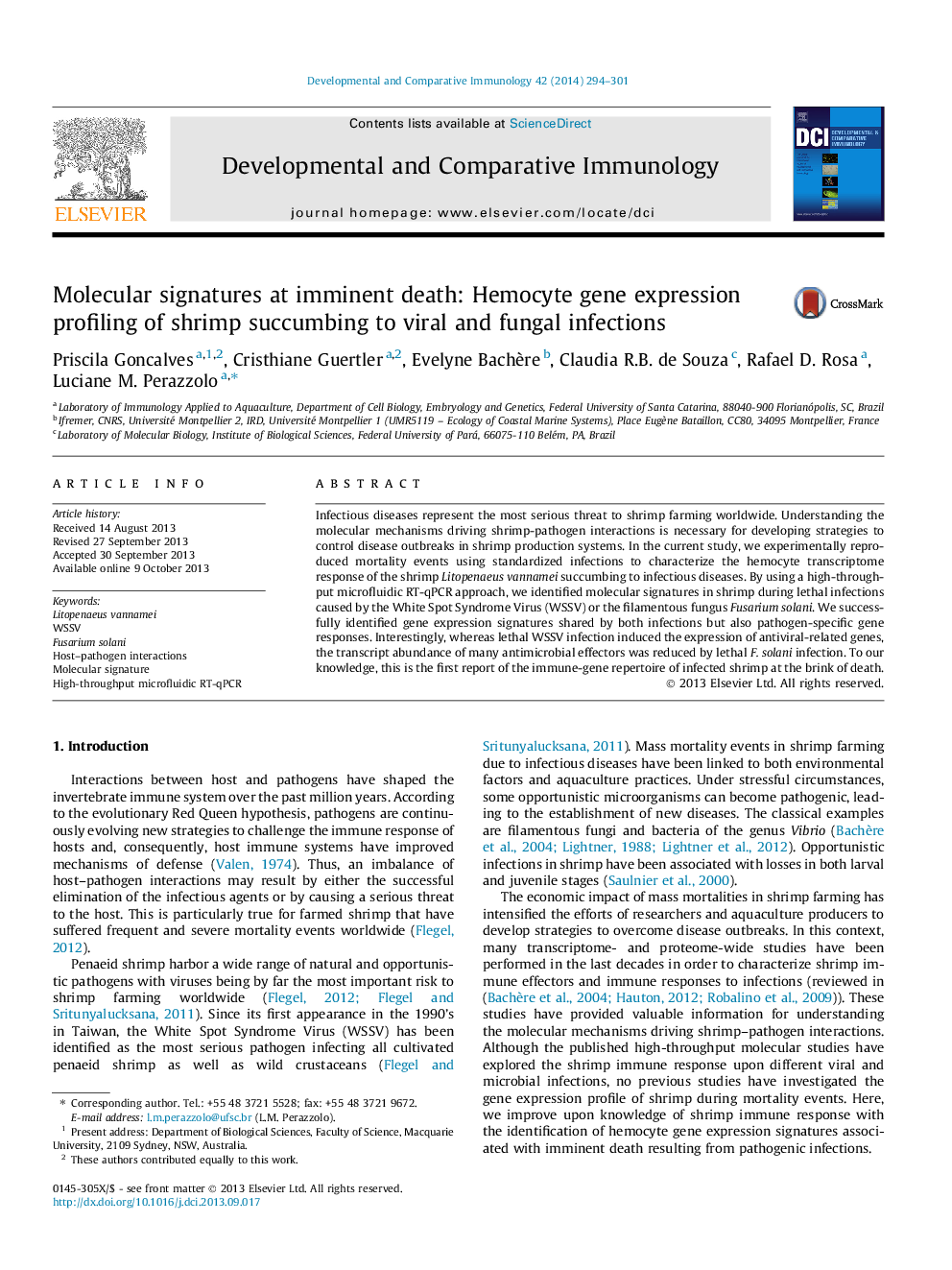| Article ID | Journal | Published Year | Pages | File Type |
|---|---|---|---|---|
| 10971472 | Developmental & Comparative Immunology | 2014 | 8 Pages |
Abstract
Infectious diseases represent the most serious threat to shrimp farming worldwide. Understanding the molecular mechanisms driving shrimp-pathogen interactions is necessary for developing strategies to control disease outbreaks in shrimp production systems. In the current study, we experimentally reproduced mortality events using standardized infections to characterize the hemocyte transcriptome response of the shrimp Litopenaeus vannamei succumbing to infectious diseases. By using a high-throughput microfluidic RT-qPCR approach, we identified molecular signatures in shrimp during lethal infections caused by the White Spot Syndrome Virus (WSSV) or the filamentous fungus Fusarium solani. We successfully identified gene expression signatures shared by both infections but also pathogen-specific gene responses. Interestingly, whereas lethal WSSV infection induced the expression of antiviral-related genes, the transcript abundance of many antimicrobial effectors was reduced by lethal F. solani infection. To our knowledge, this is the first report of the immune-gene repertoire of infected shrimp at the brink of death.
Related Topics
Life Sciences
Biochemistry, Genetics and Molecular Biology
Developmental Biology
Authors
Priscila Goncalves, Cristhiane Guertler, Evelyne Bachère, Claudia R.B. de Souza, Rafael D. Rosa, Luciane M. Perazzolo,
